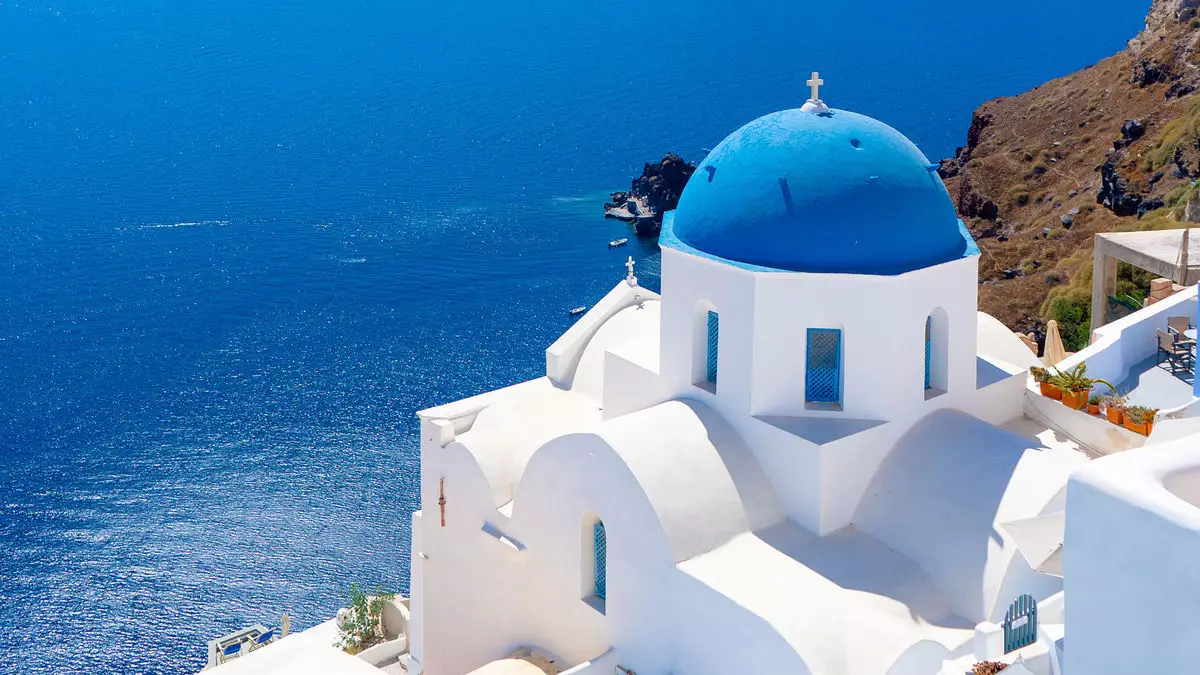Mobile hot spots for tourists, such as Santorini, often find themselves at the mercy of unpredictable natural forces. In early 2023, the iconic Greek island faced a series of earthquakes that sent shockwaves not only through the ground but also through the hearts of those who depend on its tourism. From late January, a series of small-magnitude tremors led to temporary evacuations and a state of emergency. To many outsiders, Santorini appeared to be a disaster zone; however, a closer examination reveals a new narrative emerging from the rubble of public perception. The real damage was less about physical structures and more about the perception of safety, which in the tourism industry can be as damaging as any natural disaster can be.
Despite local officials and hoteliers’ assurances conveying that there were minimal injuries or infrastructure damage, the shadow of the tremors loomed large over the travel industry’s peak booking season, causing a notable hesitation among potential visitors. For premium hospitality groups, the timing of these seismic activities could not have been worse. It is a reminder of how quickly public perception can spiral out of control, creating what some in the industry have termed a “PR disaster.”
Keeping the Faith: The Stakeholders’ Perspective
Markos Chaidemenos, managing director of Canaves Collection, boldly encapsulated this sentiment when he described the situation as more of a public relations catastrophe than a natural one. His point emphasizes why quick action and strong communication are crucial for preserving an island’s reputation. Chaidemenos reported that while visitors were not canceling their trips, the flow of bookings thinned significantly—a red flag during the months leading up to the summer tourist rush.
The response from local authorities also plays a pivotal role in restoring travelers’ faith. Greece’s tourism minister, Olga Kefalogianni, took proactive measures to stem the tide of negative press by ensuring the public that essential infrastructure remained intact. Such statements serve as lifebuoys for travel advisors and hoteliers like George Pitsinelis from the Magma Resort Santorini, who echoed that life on the island is functioning normally despite the earlier setbacks.
Indeed, the need for continuous communication is paramount, especially in the aftermath of crises. Local businesses, including restaurants and hotels, remain open and ready to welcome guests, easily demonstrating resilience amid adversity. This positive narrative has become a reassuring mantra for those in the industry, but it is also a reflection of their dedication to the island’s tourism.
Promoting Recovery: Strategies for Rebounding Bookings
As the summer season approaches, the industry’s collective efforts to stabilize bookings are evident. After the initial concerns waned, travel advisors began to observe a gradual resurgence in interest towards Santorini. Many were initially faced with apprehensive clients but managed to hold the line through well-timed reassurances. For example, according to travel advisor Katie Brown from Travelmation, many clients opted to wait out the situation instead of canceling outright. By maintaining an open dialogue and encouraging patience, she was able to navigate potential losses effectively.
The conundrum faced by hoteliers and travel planners lies not only in the shaky ground beneath their feet but also in new booking patterns and economic challenges influencing travel decisions. Shorter booking windows have become the norm, contrasting sharply with the previously established patterns where travelers would typically plan their trips months in advance.
In a changing landscape, some hotels are responding by offering enticing packages that lower prices or incentive deals, aiming to maintain demand where possible. Innovative marketing strategies blended with effective communication can promote a return to normalcy while ensuring visitor safety is prioritized.
Looking Ahead: Changing Dynamics in Travel Patterns
While there’s a distinct sense of optimism returning to Santorini, an overarching analysis of the travel landscape reveals multiple variables impacting tourism today. Travel advisors, such as Petros Zissimos of Hellenic Holidays, highlight prevalent economic concerns—such as inflation, escalating airfare, and the inevitable worries tied to global political climates—that are shaping travel trends this season.
Interestingly, more travelers are seeking out “off-the-beaten-path” locations, looking for innovative experiences where their investment stretches farther. As traditional peak periods face unpredictable availability due to shifting visitation patterns, the industry faces the reality of adapting to volatile consumer preferences. The conversations among travel advisors indicate a growing trend; tourists are opting to travel in times of reduced crowding, breaking the mold of summer travel norms.
Just as Santorini navigates its immediate recovery, its broader relevance continues to evolve. This island, resilient and relentless, stands as a testament to the tourism sector’s ability to rebound and adapt in the face of adversities, evoking not only curiosity but also a genuine desire to experience its charm personally, notwithstanding the tremors that shook its shores.

